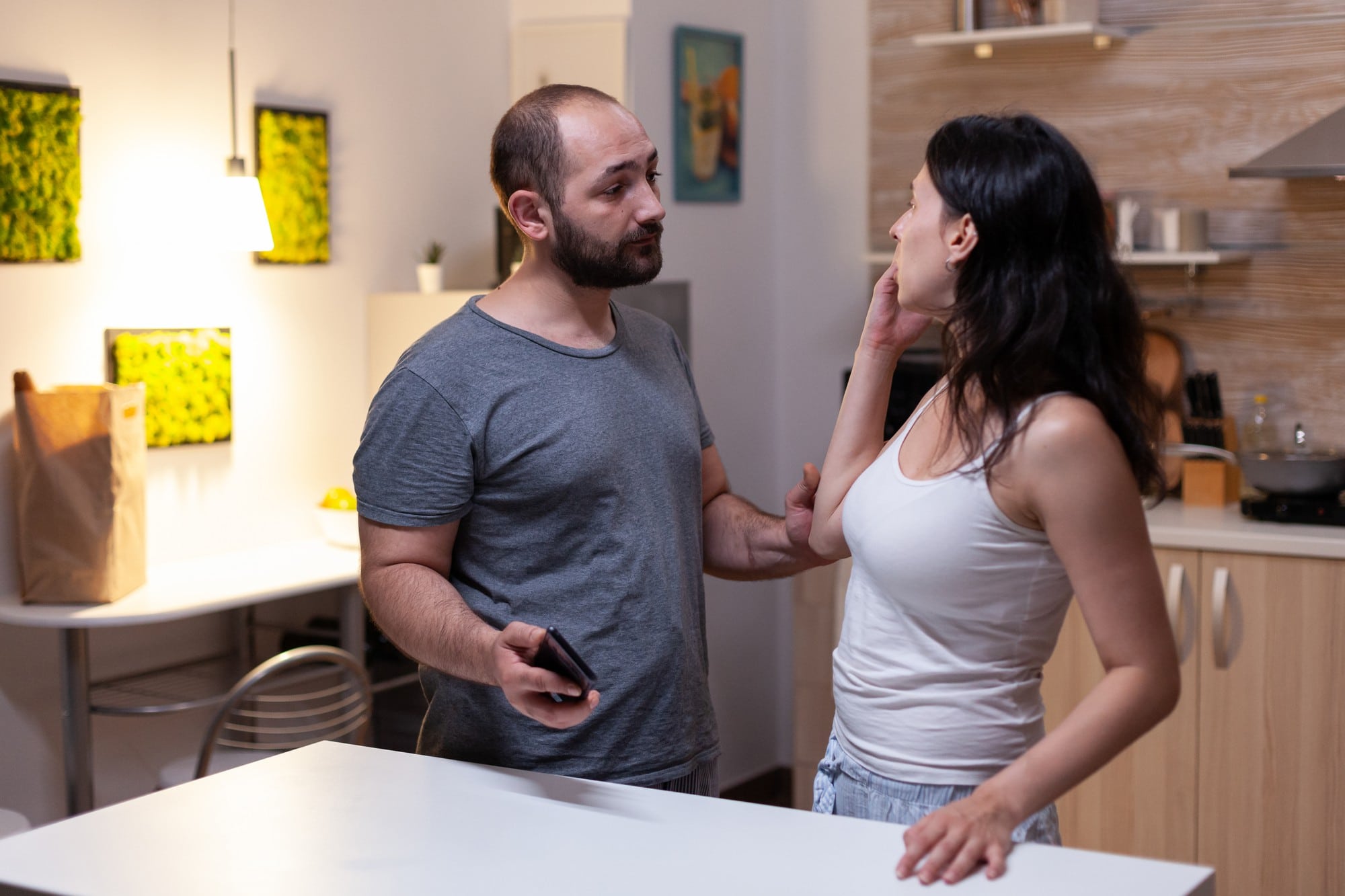Marriage Counselling in Singapore: Can It Really Save Relationships?
Last Updated on April 28, 2025 by Prath

You’ve heard the news: Many people are in unhappy marriages.
A survey in Singapore stated that 24% of people seriously considered leaving their spouse. Moreover, 20% of couples experience significant distress in their marriage at any given time.
And divorce rates? Also increased since 2022. Why are married couples so unhappy? The reasons could range from a lack of support from family to blown-out arguments and losing an emotional bond.
However, divorce is not necessarily a bad thing. Sometimes, one or both partners have just decided to throw in the towel. But other times, you can save your relationship with marriage counselling in Singapore.
A ‘perfect marriage’ doesn’t exist. What therapy does is teach you how to live with each other, argue healthily (yes, arguments are inevitable), and make your time together fun again.
Ahead, we lay out the benefits of talking to a professional and how marriage counselling in Singapore can help save your relationship.
Remember the scary couches and eerie therapy rooms in movies? We can tell you now that marriage counselling in the real world is nothing like what is depicted in the movies.
The therapy room is full of real conversations – ones that help you build the foundation of your marriage.
Marriage counselling in Singapore is based on the premise that building the best relationship with your partner is a good idea.
But what’s best may not always be easy. Therapy takes serious work to build habits, unlearn how to react to conflicts, and communicate effectively.
The negative thought and behaviour patterns are often self-reinforcing. Marriage counsellors may unpack these patterns and give you clarity on how to get unstuck.
Imagine you’ve been feeling upset with your partner for a couple of weeks. Nothing much has changed except that you feel increasingly frustrated in the marriage.
Cycling through the same unhelpful patterns in any relationship can make us feel stuck. Identifying the reason all by ourselves can also be hard.
For example, let’s say you and your partner have gotten into heated arguments for a few days now. Your partner often leaves the dishes in the sink. You feel neglected and overworked.
You rely on the same pattern of giving silent treatment or shifting blame to manage your emotions. You might think, ‘If they really cared about me, they’d know to clean the dishes without me having to remind them constantly.’ Your partner might think, ‘I’m exhausted these days. How is it such a big deal to leave the dishes for later?’
In this case, you might like things to be cleaner and more organised than your partner. This misalignment can lead to conflict if not handled properly. With more hurtful behaviours, the problem can snowball, and both of you may start to feel resentful.
Seeking marriage counselling in Singapore can help you unpack this negative cycle. You may learn to identify any underlying emotions that may be causing you frustration. Perhaps you’d felt unloved due to negative childhood experiences. Or maybe your worth at home was constantly attached to your usefulness, leading you to expect the same pattern in your marriage.
By talking to a marriage therapist, you may learn how to:
Are you friends with your partner? The question might sound weird, but often, friendships are the key to making marriages work.
Marriage counsellors may work with you to identify how to develop ‘likeness’ towards each other. At the end of the long day, when you finally get back home, do you still wish to put effort into:
If yes to the above, we have great news: You can save your relationship by receiving guidance to build on the above questions.
If not, here’s another question: Do you still wish to become friends with your partner again but are unsure how to proceed? Then, the great news still applies.
Marriage counsellors in Singapore can help you with the following:

A major roadblock to seeking help is when only one partner is eager to work on their marriage. For marriage counselling to work, both partners have to participate proactively.
Hence, talking to your partner about the benefits of professional support is important.
Here are some tips to bring up counselling to your partner:
Imagine you accidentally notice your partner texting someone you don’t know. You try to bring this up, but they shrug it off.
It is exactly at this stage that your suspicions and doubts may creep up. Who were they talking to? Why were they talking for so long? Why won’t they tell you anything?
You might start second-guessing if your partner really loves you. Infidelity can be hurtful and completely shatter your trust in your loved one.
Moreover, cheating doesn’t only mean physical. Hiding something or being secretive is an emotional betrayal. During situations like this, it can be hard to tell when the lines were crossed in your marriage and what exactly those were.
Seeking marriage counselling means that you can:
Through approaches like emotionally focused therapy, your therapist may:
We all have different ways of arguing.
Some may storm off and rely on the silent treatment, while others may use hurtful words and behaviours. And then there are a few others who are passive-aggressive.
Sometimes, the arguments may be on the same topic, yet partners may continue to bicker about it over and over again.
But mind you, an argument in and of itself is not bad. It’s the way couples handle and interact with each other that may make it unhealthy.
A healthy way of diffusing arguments, however, depends on reflective conversations.
What’s the first thing you say if you argue? It could be, ‘Why do you always do this? I’m sick of you.’ Or ‘You do this all the time. When will you understand my feelings? Why is everything always about you?’
These questions are destructive. The essence focuses on your partner, which may cause them to feel hurt and respond back with the same intensity.
However, marriage therapists may teach you:
In this example, let’s assume Kana has a conflict with her husband Dev.
The problem:
Dev invites a group of his friends to have dinner at their house. Due to the last-minute invitation, Dev forgets to inform Kana that she has to cook dinner for 10 people. On the morning of the gathering, Dev tells Kana that she has to cook today.
Kana’s emotions:
Kana might feel hurt and used by Dev, not only due to the last-minute notice but also because Dev naturally assumes that Kana will be cooking for 10 people. Kana feels like Dev doesn’t respect her time and energy. Due to this, she may feel hurt, betrayed, upset, angry, or frustrated.
Kana’s reaction:
Kana cannot manage the intensity of her emotions and lashes out at Dev. She throws the utensils around the kitchen, struggles to express her feelings, and storms off anyway to make dinner.
Result:
Kana and Dev have unresolved emotions and refuse to talk to each other. Over time, the feelings may lead to resentment and a lack of emotional bond.

Marriage therapists may teach Dev to use The ABC Model: Identify A (Event), B (Belief), and C (Consequence) to see how his beliefs affect Kana.
For example, the event is when Dev invites everyone to the house. His belief could be, ‘Kana takes care of everything when it comes to cooking, so it should be fine.’ The consequence is that Kana feels overwhelmed and angry.
Using this tool, therapists may provide insight and clarity into how Dev’s beliefs may have started the conflict and provide practical tools to help him fix the problem.
Therapists may teach Kana to process her emotions through cognitive restructuring.
For example, instead of thinking, ‘Dev doesn’t care about me’, Kana might learn to reframe her thinking with, ‘It’s not that Dev doesn’t care; he didn’t remember to let me know in advance and trusts me to handle the cooking.’
We want you to come up with a response to this question: How exciting has your love life been?
Is it full of adventures, trying new things, and exploring sexual interests?
Or is it dull, lacklustre, and boring?
Suppose your response is the latter; worry not. You are not alone. A study published in the Journal of Sex & Marital Therapy shows that the number one problem for divorce or split is a lack of love or intimacy.
Years of living with a partner and doing the same things can make sex and love life less enjoyable. After all, where did that spark from the honeymoon phase go? Why don’t you no longer feel the butterflies when you look at your partner?
Marriage counsellors in Singapore may help you address all your questions about love life. For example, you may learn tools to:
Handling issues in your love life alone can be challenging, embarrassing, or scary. However, a good therapist can help you navigate the conversation and make you and your partner comfortable discussing intimate topics.
Marriage counselling takes work, but it’s worth it.
Building a strong marriage is like building habits. The more you keep working on the positive patterns, the stronger the foundation becomes. And just like any habit, consistency is key.
Talking to a TYHO Therapist means that you can learn how to use positive patterns of interaction even when things get hard.
Marriage therapists can teach you how to:
As Dave Meurer says, ‘A great marriage is not when the ‘perfect couple’ comes together. It is when an imperfect couple learns to enjoy their differences.’
If you and your partner are ready to talk to an expert marriage counsellor, book a session today.
